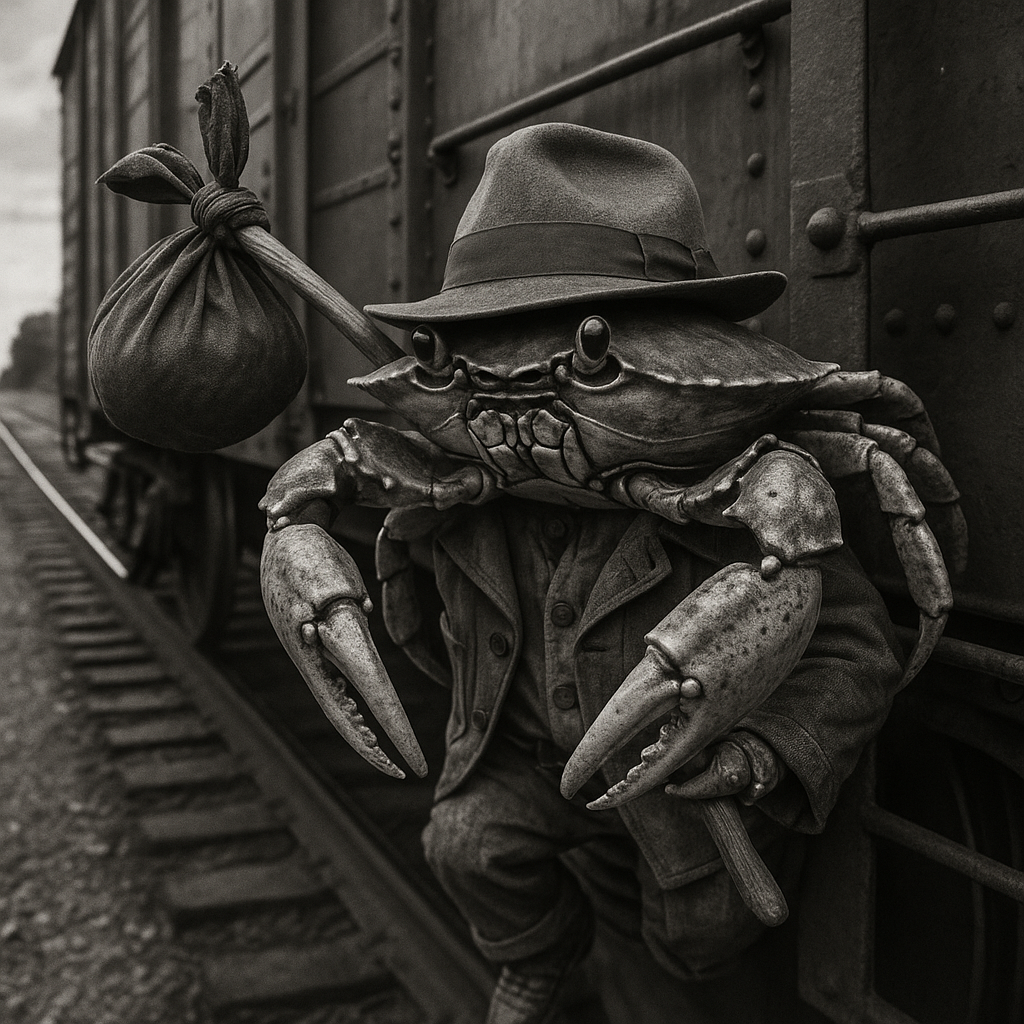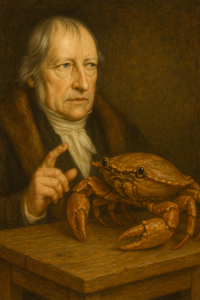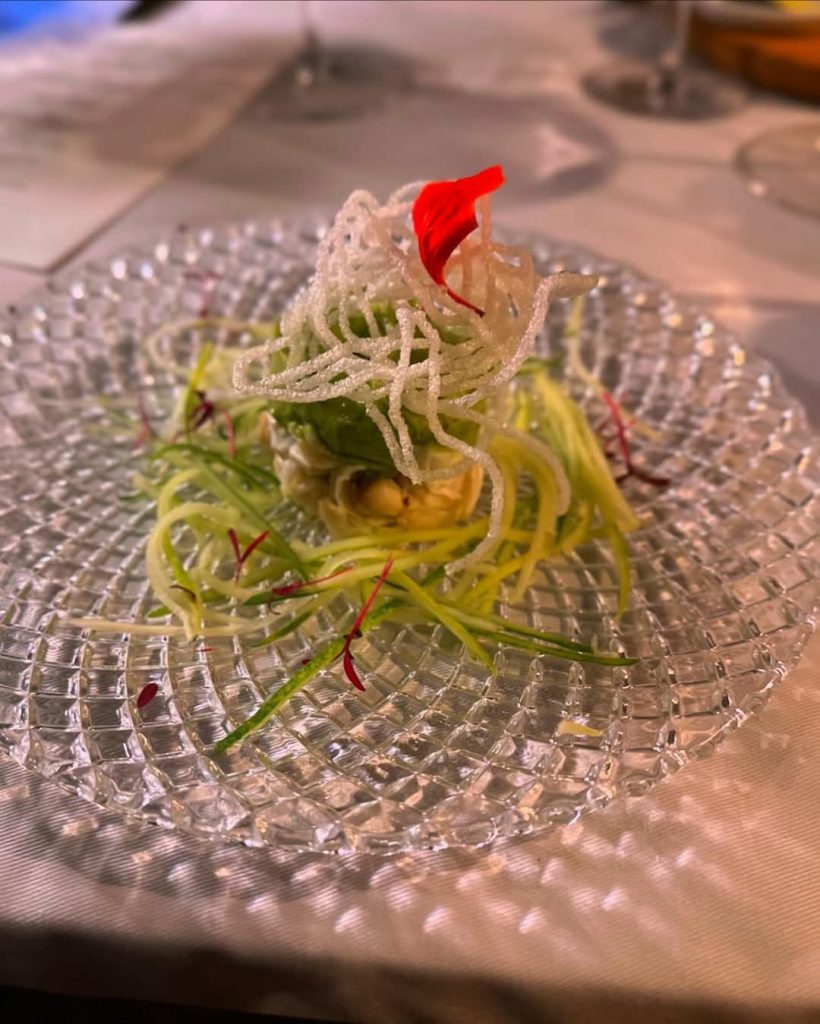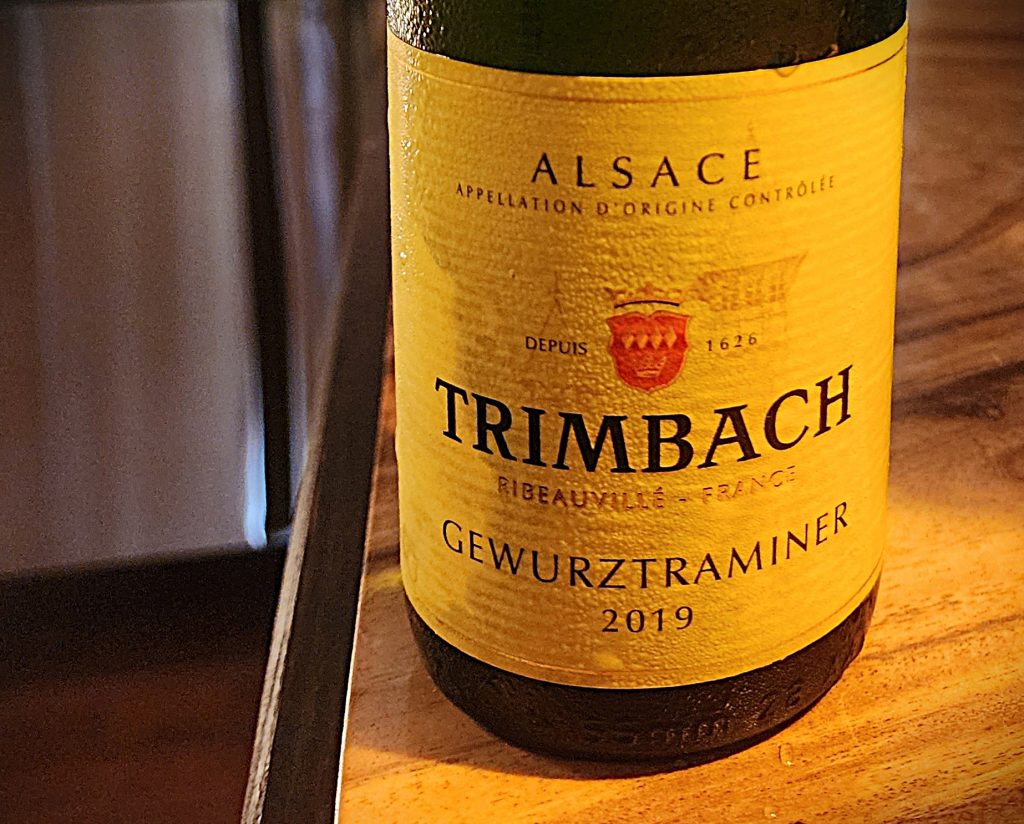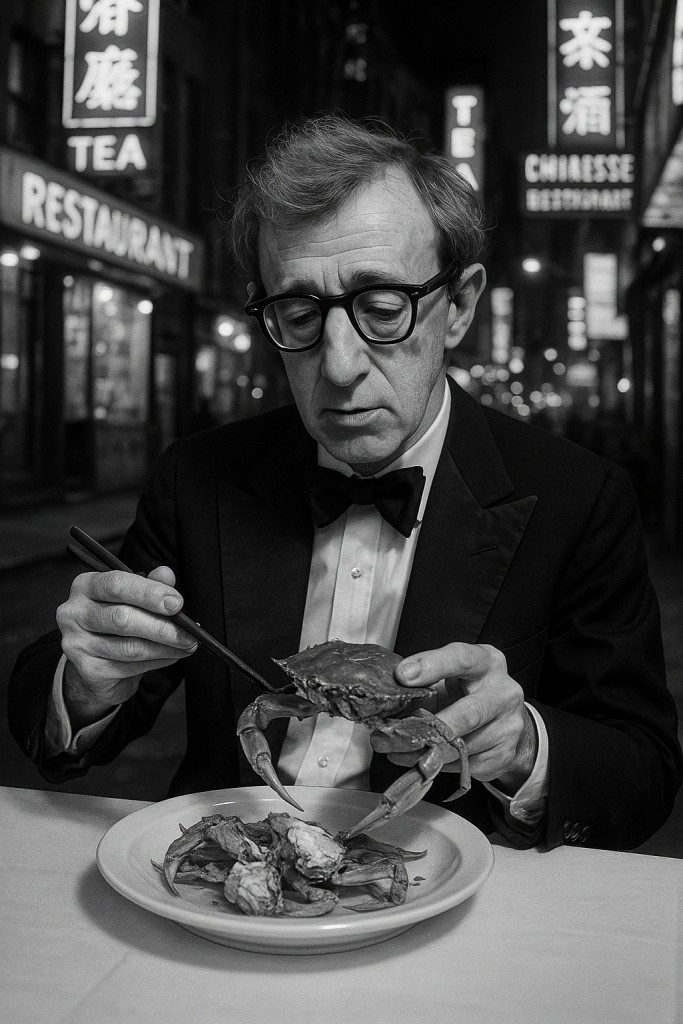CRAB FEST -ACT THREE: Shedding Shells
“Crab and sea snail are both rare creatures to me.”
— The Venetian Lagoon, (1786) -Goethe
Expat-istentialism
Thinking about Rabbi Abraham Twerski’s comment that, ‘times of stress are times that are signals for growth, and if we use them properly, we can grow through that adversity’. And meditating further on his statement that, like crustaceans casting their shells, we must be prepared to take risks, ask hard questions of ourselves, and we should be prepared to be vulnerable in order to grow.
I thought about the great Johann Wolfgang von Goethe, who in 1786 took off for Italy without informing any of his friends. He soon wrote in his Italian Journal:
“I console myself with the thought that, in our statistically minded times, all this has probably already been printed in books which one can consult if need arise. At present, I am preoccupied with sense-impressions to which no book or picture can do justice. The truth is that, in putting my powers of observation to the test, I have found a new interest in life. How far will my scientific and general knowledge take me? Can I learn to look at things with clear, fresh eyes? How much can I take in at a single glance? Can the grooves of old mental habits be effaced? This is what I am trying to discover.”
Goethe was always looking to see the world from every angle, observing in a thing every variation, and looking at it with clear, fresh eyes. He also talked about the Pygmalion effect, when he said, “If you treat an individual as he is, he will remain how he is. But if you treat him as if he were what he ought to be and could be, he will become what he ought to be and could be.”
I reflected on my quarter of a century of life as an expatriate, and a global traveler well before that, I think about the ways in which we must exist in order to thrive, to flourish and to do more than just hang on and survive in an alien world. For much of the time we exist in a bubble, unable to read signs, words, unable to understand the ambient acoustics of the conversations that surround us, and often unable to converse at all. Initially, inside our bubble, we will have a small group of friends and contacts, usually this will be made up of mostly expats, mostly from your own country, some from a smattering of others, a few locals that we genuinely regard as friends, and some more that are acquaintances.
Living in a foreign land is different, of course, and at times genuinely thrilling. However, we are often unaware of the things going on all around us, we are unable to communicate very well, sometimes not at all, and this presents many challenges. The strains begin to add up, the pressure mounts and stress ensues; and so, we are forced to cast aside our armour, our protections, and to become further engaged. Often, for most of us, I suspect, we do this willingly, at times we do it reluctantly, but we must be prepared to further expose ourselves to a foreign and somewhat unfamiliar land, and in doing this, feel vulnerable and at times even unsafe.
I think of Hegel, who taught us that it is important to understand a difference of opinion, to look into it deeply to discover what motivates it, feeds it, and drives it on. We need to understand what motivates our differences, the nature of different concepts, because it is in there that lies understanding, growth, and often, solutions. I also think of Lucius Seneca, who taught us that in order to deal with frustrations, we must not think that the world behaves in expected ways; when we are ready for anything, we are more able to deal with what life throws at us.
What we inevitably find when we put ourselves out there, become more engaged with our environment, embrace difference, diversity, and treat people equally, is that we become better people ourselves, and we grow in so many ways. When we understand, accept, respect, and appreciate other people’s different views, motivations, ways of thinking and problem-solving, then we expand our own ability to develop, consider, and take meaning from these differences, and we are so much better off. Invariably, we will also be much happier as individuals, as people who enjoy the differences, perhaps even more than the similarities.
“If you really want to escape the things that harass you, what you’re needing is not to be in a different place but to be a different person.”
― Lucius Annaeus Seneca, Letters from a Stoic
ACT THREE
CRAB TARTARE WITH GINGER AVOCADO & SMOKED SALMON EGGS
Fresh crab tartare mixed with ginger and creamy avocado, topped with smoked salmon eggs for a rich, savoury finish. Trimbach Gewurztraminer, Alsace France, 2019
The crab tartare was rich and creamy with some nice lift from the ginger and some complexity from the smoked salmon eggs. The dish was both creative and delicious in its simplicity at the same time.
The paired wine was an Alsace classic from one of its legendary producers. Maison Trimbach’s viticultural origins date back to 1626, and over the centuries, twelve generations of the family have tended its vines and produced the family’s wines. The winery has a reputation for creating clean, pristine wines of exceptional fruit quality and character.
The wine was, in keeping with the traditions of the house, an impeccable expression of Gewurztraminer. A variety that the legendary Christie’s wine auctioneer and Master of Wine, Michael Broadbent, is credited with noting smells like a tart’s boudoir! Here is a wine with a pronounced and attractive perfume of rose petals, geranium, lychee, citrus, and pineapple with subtle ginger spice and a whiff of pink peppercorns. A dry white wine with some fruity character, it has an initial burst of ripe tropical fruit, before the subtle complexities of spice and tart notes wade in, leading to a fine finish with some nice chalky minerality. An exotic, interesting, and ultimately enjoyable wine.
“I have one last request: don’t use embalming fluid on me. I want to be stuffed with crab meat.”
– Crimes and Misdemeanours (1987), Woody Allen
Darren Gall

